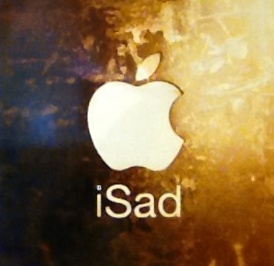Archive for the “General” Category
Jan
12
2010
Need the Job but Overqualified? How to Get it Anyway.Posted by Joyce K Reynolds in General, Need a Job, tags: Need a JobWall Street Journal blogger Alina Dizik reports, “For many employers, presenting a resume with too much experience can cost you the job. To get your foot in the door, it’s important to present a streamlined resume to potential employers. When constructing a resume, job seekers should “consider reducing emphasis on or eliminating impressive achievements which might be viewed as outside the needs of the current job, along with removing more high-level awards and recognitions,” Joyce K. Reynolds, an Executive Business Coach, says. Here, Ms. Reynolds shares advice on how job seekers can streamline their resume.” Read the full article: http://blogs.wsj.com/laidoff/2010/01/11/advice-overqualified-simplifying-your-resume-to-land-the-job/
Aug
19
2009
Thanks to Utne Reader.Posted by Joyce K Reynolds in General, Utne Reader, tags: Utne ReaderFor publishing this vitally important story. Unbearable Darkness?Why negative emotions are good for your health by Miriam Karmel Feldman September/October 1998 Emotion phobia. That’s what psychotherapist Miriam Greenspan says we have. We’re afraid of our feelings, at least our darker ones, she writes in Common Boundary (May/June 1998). In a denunciation of what she sees as a growing cultural trend toward trashing the so-called negative emotions, Greenspan laments the widely held belief that good emotions can cure, while bad ones make people sick. Putting a negative label on dark emotions “is like blaming Pandora for opening the box,” she writes. “What’s in the box needs to be known.” Read the entire article here: http://www.utne.com/spirituality/Darkness-Negative-Emotions-Health-Healing.aspx
Aug
04
2009
Facing Ourselves.Posted by Joyce K Reynolds in General, Self Awareness, tags: Self AwarenessSometimes it feels diffcult. Scary. Even impossible. We have such high expectations of ourselves that we simply can’t face the truth. That often we’re not positive, helpful or nice. Far from it, we have unkind – even ugly – thoughts. Instead of hiding from our imperfections, it’s more helpful to realize that we all have wrong or bad thinking. Mental glitches. Prejudices. That’s part of being human. But, when we shut our eyes to our flaws – most notably the things we find exceptionally disturbing – we stunt our growth. Thwart the process of discovery and change. Instead of shutting down, the better challenge is to uncover the things about ourselves that might be harmful to us or others. Stop being afraid of our own thoughts. Stop judging them and ourselves and start understanding and accepting that we are simply imperfect as human beings are designed to be. That’s when we begin the real journey into self-discovery, change and victory over things that overshadow our good and comfortable selves. Facing the truth about ourselves is the most helpful, healthy, freeing thing we can do. My father used to love telling me to keep my chin up. Let them keep hitting away, he’d say. Like my being able to withstand that kind of invited torture was a virtue. Oh, I knew what he meant. That the world is going to take shots at us. That we have to be strong. Show we can take it. But, surely, we don’t have to invite that kind of challenge. Even innocently. Keeping my chin held high in that manner probably conveyed some kind of unnecessary pride. Or arrogance. Or ego. In looking back, it was most definitely not helpful. If we’re talking about showing resilience and healthy self-respect maybe it’s not so much about keeping our chin up as it is about keeping it beautifully, confidently level.
40% — things that will never happen. 30% — things about the past that can’t be changed. 12% — things about criticism by others, mostly untrue. 10% — about health, which gets worse with stress. 8% — about real problems that will be faced. Another study stated that less than 1% of the things we are anxiety-ridden about actually happen. So, do the words ‘needless worry’ take on new meaning? You bet they do. Just think – 92% of our precious, irreplaceable time wasted. I, for one, REFUSE to do it anymore.
May
04
2009
The Downside of Being One Tough Cookie: People Stop Caring.Posted by Joyce K Reynolds in General, Tough cookie, tags: Tough cookieSome of us think we’re always supposed to go it alone. Be tough. Suck it up. Trust me. I know. What we overlook in that mode is if people like – or better yet, love – us, they want to be a significant and important part of our lives. They actually pay attention to what’s happening with us, note when we’re ‘off’ or might need support or help. And, they jump at the chance to be there for us. In turn, those of us who are super-independent promptly say, “No thank you.” Caring colleagues, friends and family members may try this repeatedly. But the time will soon come when they give up. And, why not? Who wants to keep caring about and offering help to someone who continually refuses to accept it. Better to move onto others who welcome their involvement and appreciate their support. That’s the dangerous, probably undesired downside of being one tough cookie. Eventually, people just stop caring.
Maybe it’s a sense of failure or shame at no longer living life robustly. More disturbing might be feelings of anger, callousness or deep cynicism about life. Whatever the signs, burnout is a serious problem that needs to be addressed. And it’s not, typically, something that can be overcome alone. Along with overwork, burnout often results from never having found genuine meaning or joy in one’s work. Urgent to recovery is to admit the feelings. Refuse to ignore or deny them. Use that last ounce of reserve to seek qualified help or compassionate support that will assist in getting into a solution-oriented mode. Along with understanding and emotional support, a qualified Coach, for example, can help a burnout victim put aside that terrible hopelessness or anxiety and create focus and – perhaps, for the very first time in their life – help a client identify a clear, life-giving sense of purpose. As one colleague, Mark Gorkin, so aptly put it: “For the phoenix to rise from the ashes
Apr
21
2009
Could this possibly have something to do with me?Posted by Joyce K Reynolds in All About Me, General, tags: All About MeEver wonder why the same disappointing or nasty things keep happening to you over and over again? I know I do. Sometimes it’s amazing that it takes me so long to understand that this has something to do with ME! That some unconscious belief or unfortunate bit of mis-learning is continually creating circumstances that I don’t like or want. Over and over again. So, what to do? First, admit it. I create my own stuff. I am, in fact, committed to this stuff whether or not I like it. And, I am the only one who can change this unhappy circumstance. I have to start by replacing those mostly unconscious loyalties to the way I do things or think things that produce unhappy sometimes really bad results with thoughts, practices and goals that support the purposeful, productive things I’d like to achieve. So, if I want the life I say I want but don’t have – it’s that simple. It’s mine to fix. No excuses. And if I don’t? Well, as Ricky would certainly say, “I got some ‘splainin’ to do!”
Feb
18
2009
Letting Go.Posted by Joyce K Reynolds in General, tags: Buddhist, Clinging, Letting Go, Piya Tan
Tan explained that if we understand nothing is worth clinging to, and move on with happiness, whatever we do next will be even better. He said that this gives us an inner sense of satisfaction and happiness that no one can take away. That we suffer pain when we depend on external things and others for recognition and happiness. This all made good sense to me. So I started thinking about what it means to not cling to anything. Really. Anything. I was reminded of the day over twenty years ago when I did the very first lesson in A Course in Miracles. The instruction for Lesson One is to sit quietly and look around saying, “Nothing I see in this room (on this street, from this window, in this place) means anything.” All was going well until my eyes fell on my cat, Sug. Next on a photo of one of my nephews. Hm. Now this was getting challenging. I felt tension arise at the mere thought that my cat or my nephew had – well – no meaning! A sense of panic followed as if in some way I was renouncing them. That they might simply vanish before my eyes if I pursued this exercise. In those seconds, I wanted to cling to them. To affirm how important they were. To reject the thought that they had ‘no meaning.’ Then I got it.There was nothing mystical or destructive going on. This was just another way of helping me get free of the belief that I need to cling to things. Try in some way to make them last or have more meaning. In this letting go process I became acquainted – however, fleetingly – with a way of being in the moment and able to live like beautiful flowers “Who are not anxious about tomorrrow but live with ease in the timeless now and are provided for abundantly.” Quite a reward for letting go.
Feb
16
2009
Is It Only About the Money?Posted by Joyce K Reynolds in General, tags: Barbara Stanny, Money, Overcome Underearning, Soul of Money, Underearning
So – without getting into the ‘who cares’ and ‘if all’ of it – what about the money? Is that the ONLY thing that most CEOs care about? In a late 2004 study of two hundred and eight Fortune 1000 CEOs, a mere 7% indicated that money was their top motivating factor. A near majority – 43% – said they were largely motivated by fear (most likely of losing their jobs!) and another 22% indicated that their top motivator was power. Five critical years have passed since NY-based Jericho Communications revealed this study, so we might want to ask – could things have changed that much? For all the recent and very bad press, it’s a fair question. Maybe I’ve just been lucky, but in the nearly fifteen years I’ve been Coaching CEOs (among others), I have not encountered one such executive who didn’t care more about the culture, well-being, intellect and overall profitability of their organizations than about their own income.
Does that mean there isn’t a class of CEOs who thinks only of their own wealth? Absoutely not.
And we don’t even have to rely on the fictional Gordon Gekko to prove the point. There’s the now-deceased Ken Lay followed by John Thain, Patrick Soon-Shiong, Richard Baker and so many others who are pocketing millions – even billions – while workers are being laid off.
But, there’s also a long list of admirable CEOs that includes people like Genentech’s Art Levinson, Eric E. Schmidt of Google, and Adobe CEO, Shantanu Narayen.
Bottom line? It’s not always about the CEO’s personal bottom line and it’s unfair to negatively brand the whole category. |












 Entries (RSS)
Entries (RSS)